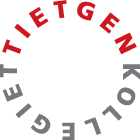At Tietgenkollegiet, we are in a privileged and yet challenging situation that there are always more applicants than available rooms. Thus, we have established a Recommendation Committee that processes and selects the applicants to be accepted onto the residence hall waiting list.
If the applicant complies with the formal requirements described on the page Who can apply?, the application will be evaluated by the four representatives of the Recommendation Committee (Indstillingsudvalget – ISU) as well as a representative of the residence hall administration or board.
About the Recommendation Committee
The Recommendation Committee consists of six residents who are democratically elected by their fellow residents at the yearly constituent Dorm Council meeting. The official description of the committee is as follows: “The Recommendation Committee (ISU) represents the residents at the Tietgen Residence Hall, and oversees the selection of responsible, engaged and social students who can support an attractive housing and study environment.
The committee is responsible for the four yearly application rounds. For each round, the applications are split randomly into two groups, each consisting of three ISU-members. In these groups, the three ISU-members evaluates the applications, and passes on the best 10-15% to the final round, where all six members and the representative from the board reads and evaluates.
Focus on motivation AND DIVERSITY
During the evaluation of the individual applications, special attention is given to the sections where the applicant describes his or her motivation for living at the Tietgen Residence Hall. The goal is to find applicants who will fit the dorm the best, and who can contribute to making the dorm a great place to live. Because every ISU-member draws from their own experiences and beliefs evaluations are subjective. It is therefore not possible to define what exactly makes ‘a great application’. However, ISU does evaluate based on the dorms principles of diversity, and aims to select applicants from a wide variety of studies, cultures and interests in every round of applications.
goOD ADVICE FROM THE RECOMMENDATION COMMITTEE
There are many ways to write a good application, but based on our experiences in the selection committee, we have gathered some good advice on what works when you need to give us an insight into who you are on one page. Additionally, we would like to emphasize that everyone (who meets the formal criteria) is welcome to apply. There is no right way to be a resident, so there is room for extroverts, introverts, those who love to party, and those who don’t. The most important thing is that you want to be part of the community.
It’s not a job application
The selection committee consists of six residents and a board member. This means that your application will be read by peers who could potentially be your future neighbors and friends. Feel free to keep the tone informal and meet us on equal terms.
We want to get to know you:
When we read applications, we are looking for those we believe can be good neighbors and who want to be part of the community. You have one page to convince us, and here are some good approaches you can use:
- A few pictures can do a lot to add personality to your application and give us a better insight into who you are. (Pictures speak more than 1,000 words and are cooler than a text-heavy page in font size 10, line spacing 1, and wide margins.)
- That said, let creativity not take over. If there’s too much concept, we might have difficulty seeing the person behind it. A song, a poem, or a board game might not necessarily be the best way to describe you.
- Show it, don’t tell it. Describe yourself through actions, not just words. And try to avoid banalities that don’t explain who you are.
- We know the architecture is beautiful and the facilities are good, but you don’t need to spend space writing about that.
- Be honest.
What can/will you contribute?
- Focus on what you can contribute to Tietgen, rather than what you can get out of it. We know the location is good, the rent is fine, etc., but that doesn’t say anything about you or how you are as a neighbor if you think so.
- Feel free to provide examples of specific activities, ideas, and initiatives that you could imagine contributing to as a resident.
Inspiration to kickstart the application
- What do you do in your free time?
- What did you do during your gap year?
- What are you passionate about?
- Why are you studying what you are studying?
- Feel free to zoom in on something specific, an anecdote, something that has shaped you, etc. Remember, we have confidentiality;)
And finally, an important point: If you didn’t get in, apply again! We receive so many qualified applications, and yours was definitely one of them. Give it one, two, or more shots, but we would prefer if you didn’t reuse the same application.
We look forward to reading your application!
Confidentiality and disqualification
Members of the Recommendation Committee are subject to rules of confidentiality and are not allowed to pass on information about applicants and/or applications under any circumstances. Furthermore, ISU-members with a personal relation to an applicant is disqualified from evaluating that application.
Allocation of rooms
When the rooms are allocated to the applicants on the waiting list, this is done based on the principle that there should be the greatest diversity possible in the various kitchens. This includes, e.g., striving for ensuring a distribution of gender and types/places of education in the kitchens.

